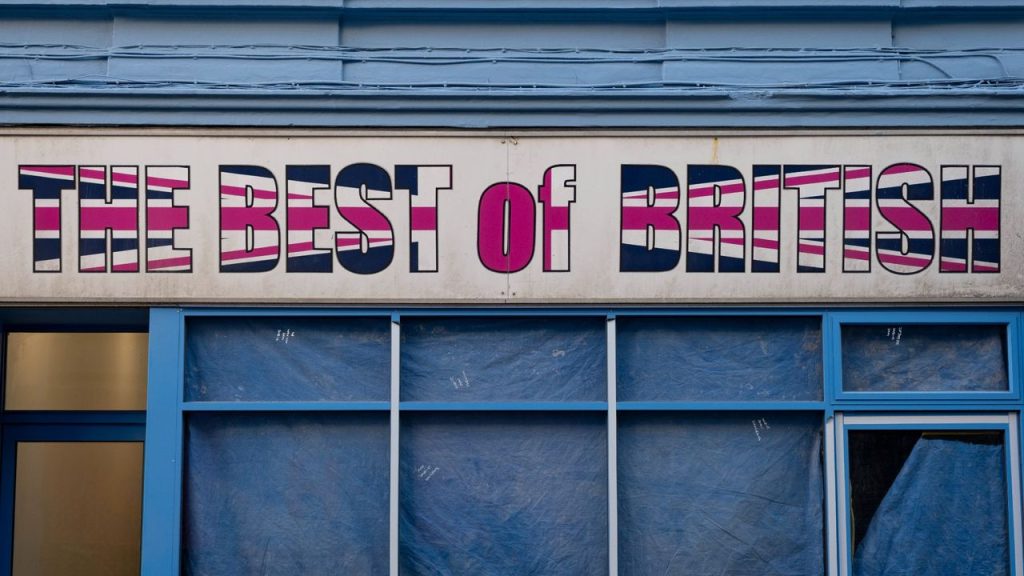The UK’s unemployment rate hit 5% last week, the highest since the Covid-19 pandemic and higher than most analysts had predicted.
The Office for National Statistics figures, although in some dispute because of concerns over the quality of the data, indicate a weakening jobs market and slowing wage growth. Taking out the “skewed levels” of the pandemic years, the current unemployment rate is “the highest seen since August 2016”, said the BBC.
Two days after the unemployment numbers, it was revealed that GDP grew by only 0.1% in the third quarter of this year. The sluggish growth and rising unemployment rate are ringing alarm bells for economists about the risk that the UK will soon be entering a recession.
What did the commentators say?
To count as a recession, the economy has to have “two consecutive three-month quarters in negative territory”, said The Independent’s chief business commentator James Moore. In the first quarter this year, UK plc grew by 0.7%; in the second, by 0.3%. Now we’re “flatlining”.
And last week’s unemployment stats “caught most economists on the hop” – they “weren’t expecting anything quite as bad”. The jobs market “looks increasingly like a pile of industrial slag dumped in an area of outstanding natural beauty”.
Donald Trump’s state visit in September was accompanied by “a blizzard of announcements” on investment in AI, a “genuine vote of confidence in the UK economy”, said The Telegraph’s assistant editor Jeremy Warner. But outside of tech, there is “gathering gloom”; AI is “unlikely to save the UK” from “the growing drumbeat of an incoming recession”.
In September, a group of chief executives “fired warning shots at the Treasury”, said Christian May, editor-in-chief of City A.M. John Roberts, boss of British retail giant and FTSE-listed AO World, thinks “things are so bad he feels the UK is heading into recession”. The R-word is “a big call”, said May. More people are talking about stagnation – “an equally ugly phrase”. But the fact that we’re talking about recession at all is in itself “telling, and alarming”.
Fears of a recession are growing because all “the signals are lining up at the same time”, said Nigel Green, of the deVere Group, in the Daily Mail. “Weak output, higher unemployment and looming tax increases form a combination that investors cannot ignore.”
Britain’s economy is “in the dog house”, said The Economist. “Inflation is sticky, debts and deficits are high, and productivity growth is low.” Infrastructure and housing projects are “turning out to be a sorry disappointment” rather than drivers of growth.
But “some of the doomsaying is overdone”. Britain is not in a recession – yet. Its strengths, such as its universities, the English language, service sector, and the City of London, are “enduring”. In many ways, Britain “can look to continental Europe and count its blessings”.
What next?
No mainstream economist has “a fully blown UK recession pencilled in” for the coming year, said The Telegraph’s Warner. Recessions “generally require some sort of trigger” – although in this case it may not be necessary, given that the economy “seems instead to be simply dying”.
Office for National Statistics figures published today show the government has “inched a little closer to its 2% inflation target”, as inflation fell to 3.6% in October, down from 3.6% in September, said The Spectator. This “slight improvement offers limited relief” – “the real test” will be whether inflation falls to 2% by mid-2027, in line with Bank of England projections.
A further cause for modest optimism is that a December interest-rate cut is “all but nailed on, which will please mortgage borrowers”, said The Independent’s Moore. But tax increases will “inevitably attach a lead weight to Britain’s economic legs”. There’s “a lot riding” on next week’s Budget – “that R-word could at least be in play”.
Sluggish growth and rising unemployment are ringing alarm bells for economists
